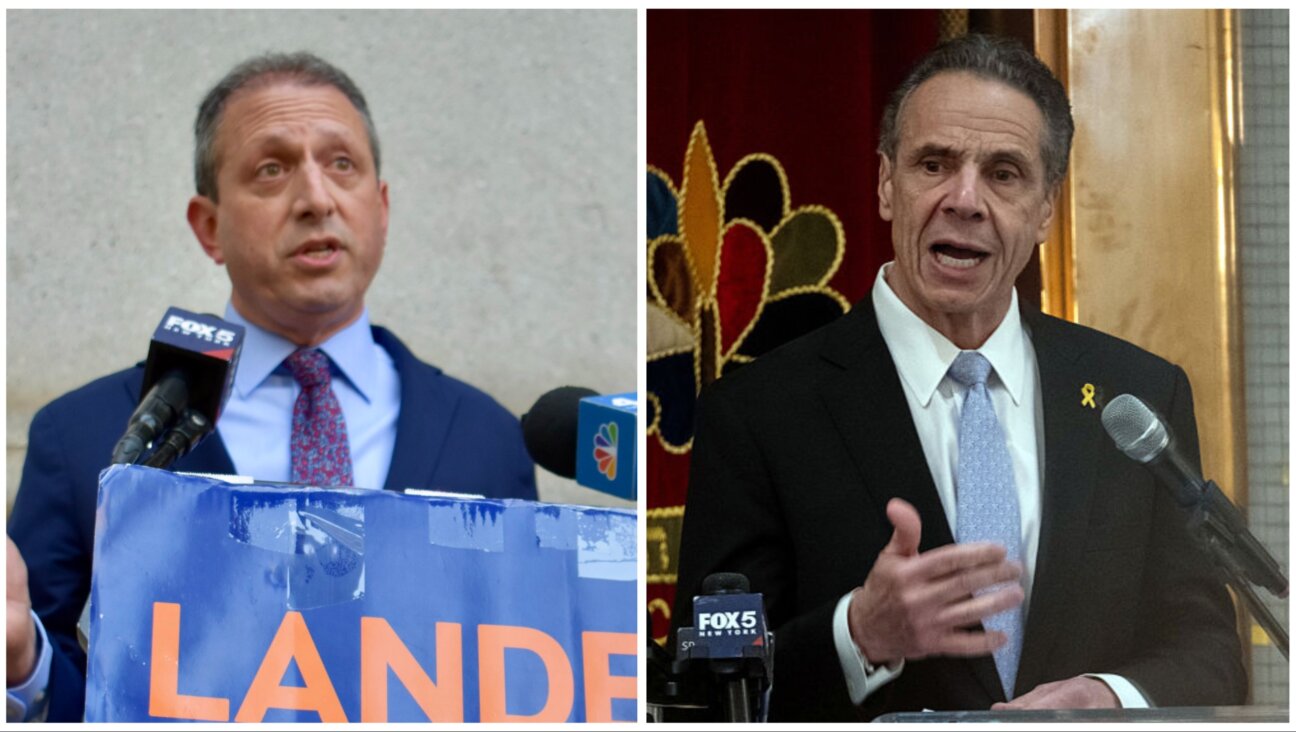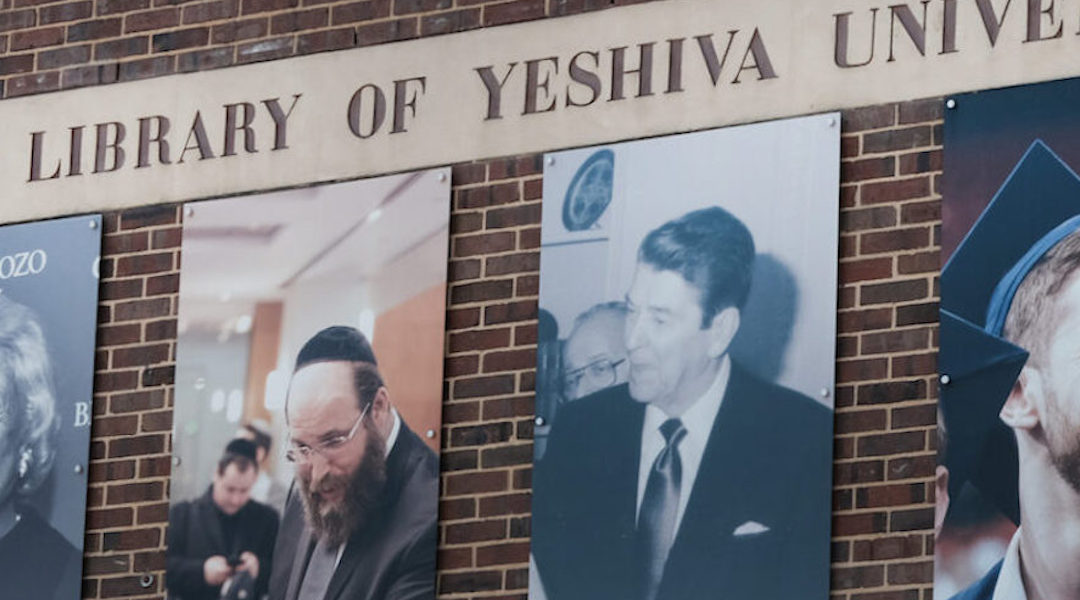Down and Out in the Hollywood Hills: A Reunion
Seth Greenland’s debut novel, “The Bones” (coming out next month from Bloomsbury), follows Lloyd Melnick, a TV comedy writer who has stumbled onto accidental success in Hollywood, and Frank Bones, a racy stand-up comedian whose once-thriving career has stalled. With hopes of hitching his broken-down wagon to Lloyd’s rising star, Frank has arranged a meeting to sell his long-lost acquaintance on a project that might jump-start his fading career. In the following excerpt, Lloyd awaits the reunion.
Lloyd checks his watch and again looks at the door. He’s beginning to wonder if Frank is going to show. Slightly sick after three cups of decaf, he ponders the distance he’s traveled since his New York days. That he finds himself at the age of forty-two as a writer of situation comedies in Los Angeles is a source of no little dismay. Lloyd has spent the last seven years working on “The Fleishman Show,” which was spawned and run by the cranky misanthrope Phil Sheldon, with all of its scripts masterfully composed by the same Phil Sheldon. The job of the overpaid writing staff essentially consisted of coming to work, eating lunch, avoiding Phil Sheldon and going home. Lloyd had had virtually nothing to do with the triumph of the endeavor.
This did not stop other television studios, desperate to re-create the otherwordly success of “The Fleishman Show” and not understanding it was sui generis, from throwing piles of money at “Fleishman Show” writers whose primary, often sole, qualification was having been in a room with Phil Sheldon. Lloyd Melnick is one of those people, like Rockefeller or Onassis offspring, a possessor of undeserved wealth. What is he doing fingering swatches of plush fabric for a quintet of sofas, for it is five they are buying, that will cost more than his father, the comptroller of a medical supplies company in Queens, has ever made in a year? How did he go from being a penurious print hack to well-remunerated television one?
Lloyd had been eking out a living as a freelance writer in New York when he noticed his thirty-third birthday approaching with alarming speed. The thirty-third year had always held a mystical aspect for Lloyd. He’d long been aware that Jesus, Alexander the Great and John Belushi had all prematurely perished at thirty-three and these were men who had led lives of remarkable achievement. Whenever Lloyd thought about his own modest accomplishments he was often overcome by feelings of deep inadequacy. He’d had the first chapter of an autobiographical novel in the desk drawer of his apartment for several years now but Lloyd never seemed to find the time to write the second chapter, much less finish the book. Like virtually everyone of his generation with literary aspirations, he’d written a screenplay, a romantic comedy about an actress and a playwright that stole so extensively from Woody Allen that three of the people he showed it to told him he would be sued in the unlikely event it was produced.
Stacy, to whom he’d been married for two years at this point, was encouraging him to get a job as an advertising copywriter. She had been working as a junior account executive at a downtown PR agency whose loft-like office seemed a beacon of cool capitalism and she thought Lloyd might thrive in a similar environment. Lloyd, however, wanted no part of the advertising business, believing it to be the graveyard of literary ambition. Then one cold winter night he was invited to a party at Neil Levin’s studio apartment on West 86th Street.
Lloyd played basketball with Neil Levin every Tuesday night in the tiny gym at P.S. 6 on the east side. A comedy writer who had spent a couple of years in Los Angeles, Neil had decided to leave that city after the riots in ’92. Currently making peanuts directing a series of shorts for a children’s show on PBS, he told Lloyd there was much money to be made writing sitcoms in L.A. if one could stand living there, Neil taking the Saul Steinberg point-of-view that civilization collapsed west of Hoboken, New Jersey. Also participating in this conversation was Neil’s friend, one Phil Sheldon, a standup comic who had starred in one of the shorts Neil had directed. Phil didn’t care particularly for either New York or Los Angeles. He was pretty much miserable wherever he was. But that said, he was about to fly to L.A. to finish work on a pilot he had written and produced and it seemed as if he was going to emerge from the experience relatively unscathed. “It’s all a shiny penny,” Phil said. “A very shiny penny.”
Phil told Lloyd to call him if he came to L.A.
Emboldened by his discussion with Neil and Phil, Lloyd told Stacy he wanted to move. Her agency was opening an L.A. office at the time and they were happy to transfer her out there. Three months after the party at Neil Levin’s, the Melnicks were ensconced in a Spanish-style courtyard apartment in the Fairfax district surrounded by a mélange of hipsters and Hasidim who would mingle on the sidewalks turning the sunbaked avenues of Lloyd and Stacy’s new neighborhood into an MTV shtetl.
Lloyd didn’t feel comfortable calling Phil Sheldon, selling himself in such a personal way not being his strong suit, so he found himself writing a spec script for a show called “Friends,” which had debuted that year. Easily capturing the pseudo-hip urban banter that made the show so phenomenally popular, Lloyd took less than a week and the first agent he sent it to, Irv Drossman, an old-timer whose name he got from a Writer’s Guild directory, was only too happy to sign him. Irv got Lloyd an entry-level gig as a writer on a sitcom Valerie Harper was doing and by the time he was fired six weeks later for not pulling his weight in the writer’s room (a comedic abattoir, to be sure), he’d found the confidence to call Phil, whose project, now known as “The Fleishman Show,” had been picked up. Phil loathed talking to agents, which was the way most showrunners usually found writers, so Lloyd’s timing could not have been more propitious. He came in to meet with Phil, they talked about the New York Knicks for an hour and he was asked to join the staff that afternoon. Even Irv Drossman couldn’t believe it.
Lloyd’s rise was so unimpeded (somehow, the unfortunate Valerie Harper project never found its way to his resume) it was almost as if he were mocking those whose struggles were more Sisyphean. Lloyd knew this and tried to be sensitive to it. He developed a line of self-deprecation people found likeable. He was careful not to take credit for the success he’d experienced, ascribing it to a combination of luck and, well, luck.
It all seems rather silly to him as he contemplates Stacy’s fabric samples. If upmarket fabric samples have a consciousness, he’s thinking, surely they would want to be with someone who deserves them more than I do.
This is the very thought preoccupying him as the door to Duke’s opens and Frank enters, trailed by a young man with short black hair, a soul patch, three earrings and a video camera. The cameraman pans to Lloyd, catching him waving back, and Lloyd thinks Is this a fan or does Frank have a personal videographer now, his life a perpetual bar mitzvah?
Frank walks over to Lloyd who rises, smiling.
“Babe!” the universal greeting, familiar yet distancing. Frank embraces Lloyd, who temporarily forgetting their positions on the food chain have been reversed, feels flattered and embraces Frank.
“Bones!” Lloyd using the last name immediately, paradoxically more intimate than ‘Frank’.
“You look rich,” Frank says, letting Lloyd know he’s been following his northerly career trajectory.
“Yeah, I’m all right.” Lloyd tries to ignore the camera recording their every twitch, uncomfortable performing.
“The guy with the lens pointed in your face is Otto Duhamel.” Lloyd looks at Otto, nodding. Otto fails to acknowledge the introduction. “He’s making a documentary. It’s gonna be in Sundance,” Frank hyperbolizes, unable to not blow smoke, referring to the snowbound Utah film festival where Hollywood agents outnumber pine cones. “You can sign a release later, Babe, cause you’re in it.”
That he’s forty-five minutes late is never mentioned as Frank sits down and looks at the laminated menu, Lloyd following suit, returning to his decaf. Otto lowers himself into a chair continuing to videotape them. While Lloyd pretends to read the waffle choices, he considers his relationship with Frank. They knew each other once and, as we have seen, there was a short interlude when Lloyd planted himself in Frank’s living room. Lloyd would have liked to maintain contact but once he’d moved into his own place and his article on Frank had been published, he found the Bones somewhat less available. So much less available, in fact, that it had occurred to Lloyd perhaps Frank had played him. Not in a malicious way, certainly. Not in a way meant to diminish Lloyd. Just in a way intended to maximize the benefit to Frank.
The false familiarity that is the lingua franca of the entertainment business would lead the casual observer who had watched them greet each other to believe Frank and Lloyd were two old pals with a genuine fondness for each other. The truth is, they have never been friends, just a couple of guys who knew each other during an earlier time in another city.
The Forward is free to read, but it isn’t free to produce

I hope you appreciated this article. Before you go, I’d like to ask you to please support the Forward.
At a time when other newsrooms are closing or cutting back, the Forward has removed its paywall and invested additional resources to report on the ground from Israel and around the U.S. on the impact of the war, rising antisemitism and polarized discourse.
Readers like you make it all possible. We’ve started our Passover Fundraising Drive, and we need 1,800 readers like you to step up to support the Forward by April 21. Members of the Forward board are even matching the first 1,000 gifts, up to $70,000.
This is a great time to support independent Jewish journalism, because every dollar goes twice as far.
— Rachel Fishman Feddersen, Publisher and CEO
2X match on all Passover gifts!
Most Popular
- 1

News A Jewish Republican and Muslim Democrat are suddenly in a tight race for a special seat in Congress
- 2

Fast Forward The NCAA men’s Final Four has 3 Jewish coaches
- 3

Fast Forward Cory Booker proclaims, ‘Hineni’ — I am here — 19 hours into anti-Trump Senate speech
- 4

Film & TV What Gal Gadot has said about the Israeli-Palestinian conflict
In Case You Missed It
-
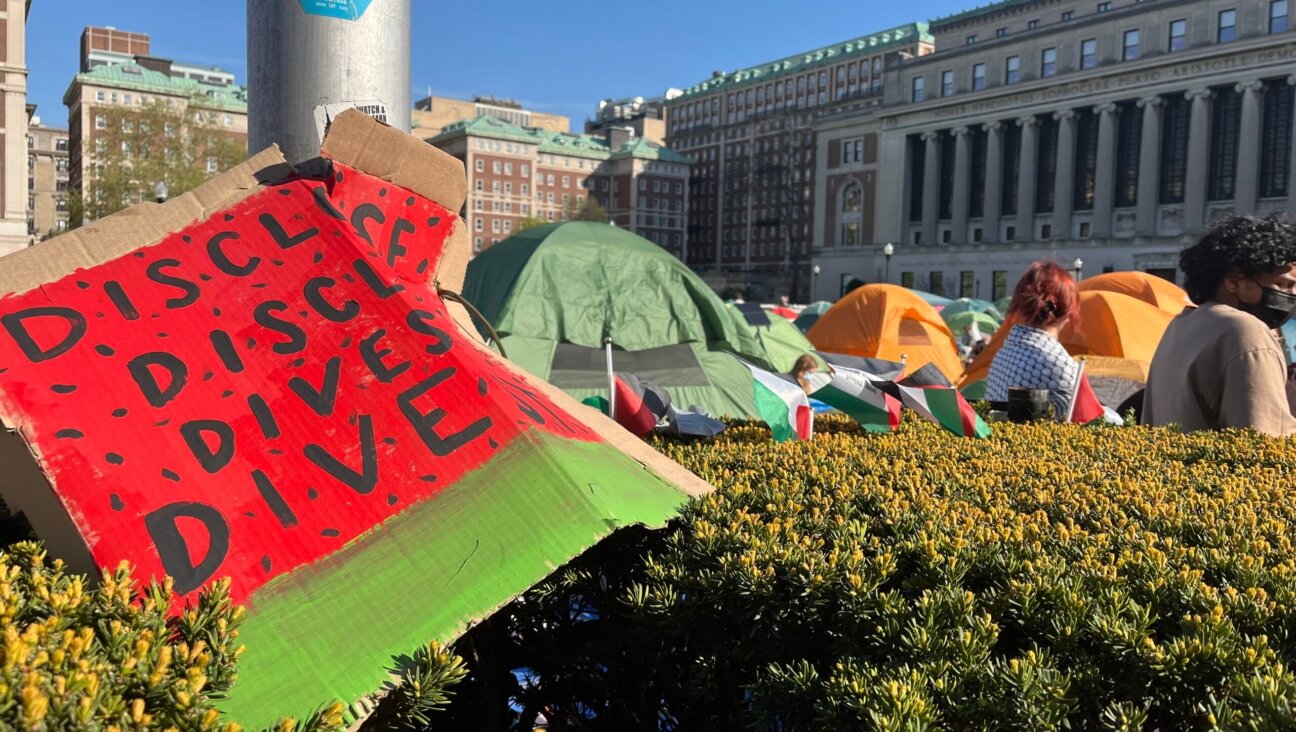
Fast Forward ADL upgrades 19 colleges’ antisemitism ‘grades,’ as some enact new policies
-
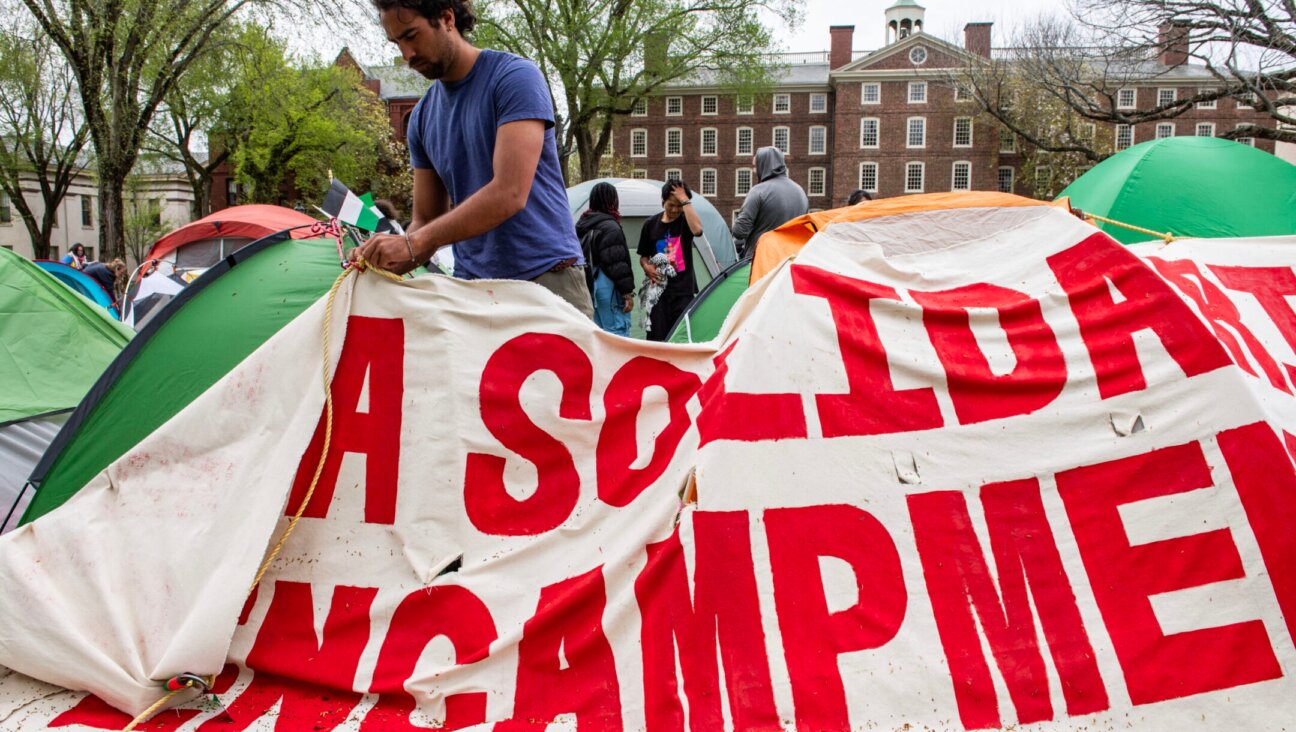
Fast Forward Brown U leaders praise Jewish life on campus as Trump expected to slash $500M
-
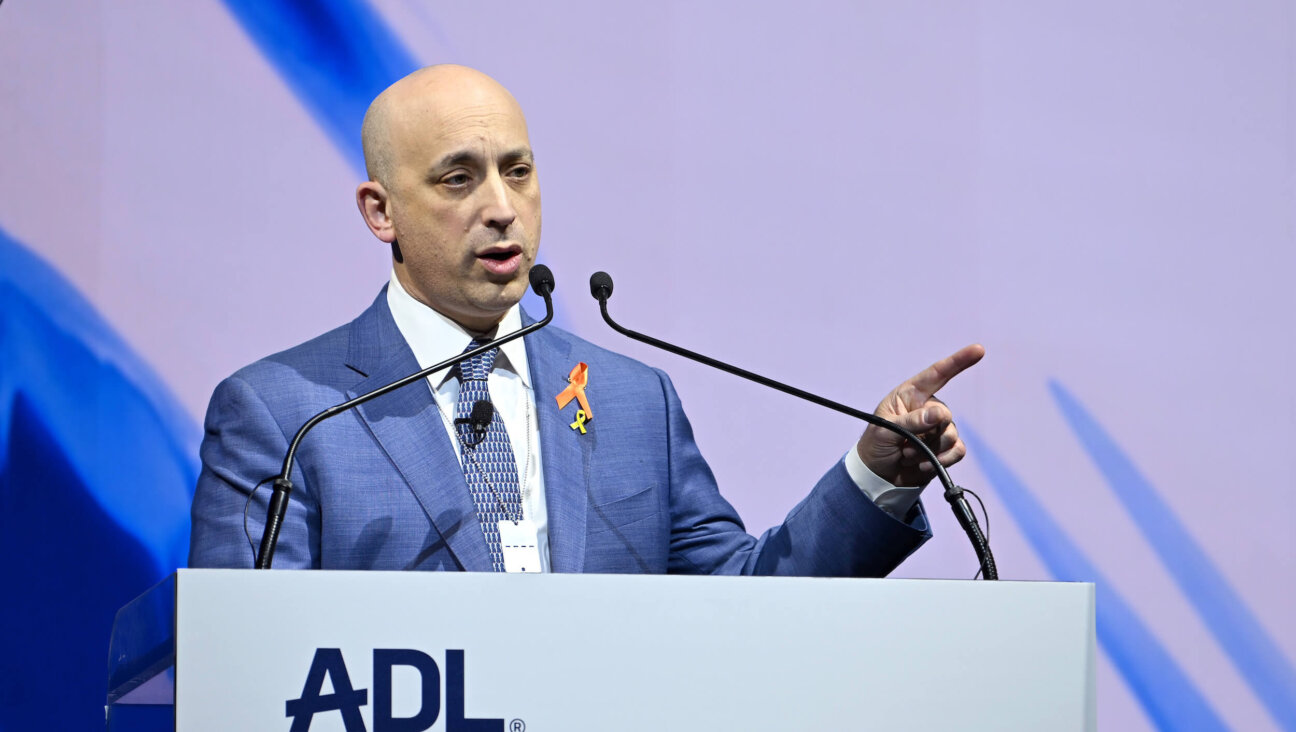
Opinion The ADL reversed its support for Trump’s student deportations. You should too
-
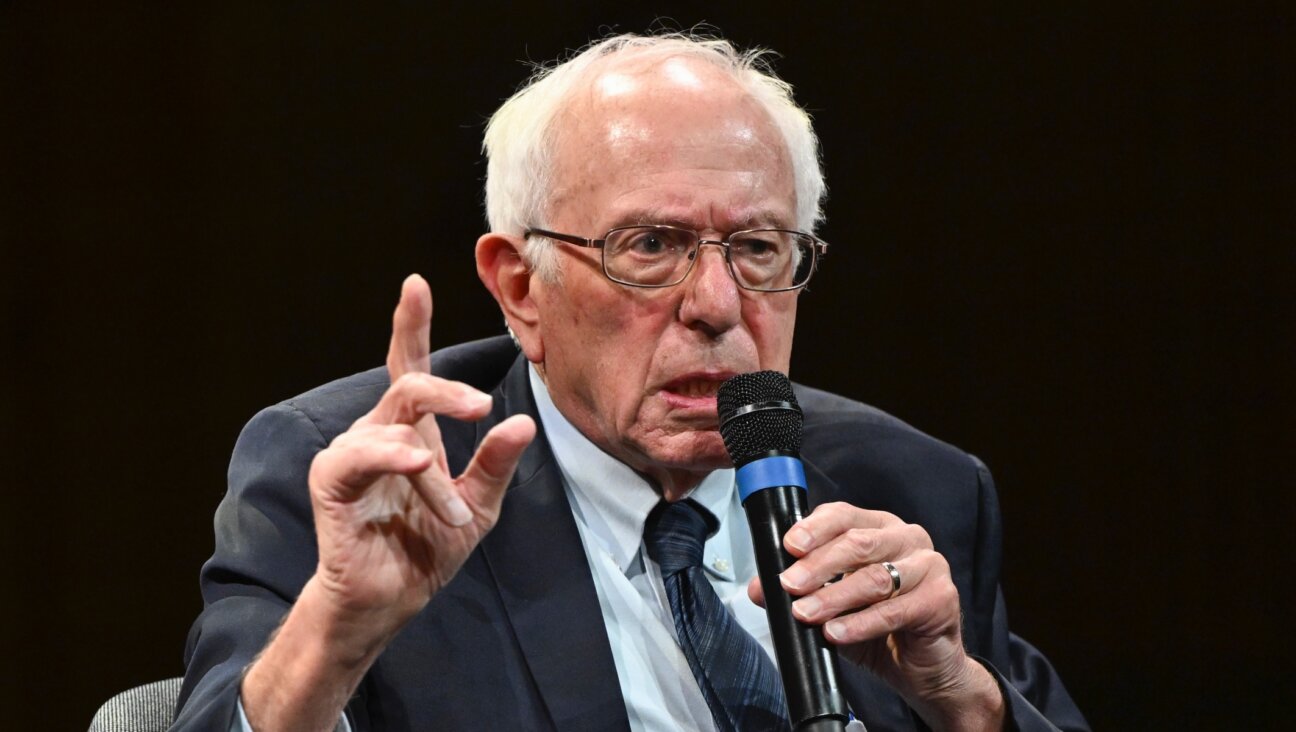
Fast Forward Senate rejects Bernie Sanders’ proposal to block some weapons sales to Israel
-
Shop the Forward Store
100% of profits support our journalism
Republish This Story
Please read before republishing
We’re happy to make this story available to republish for free, unless it originated with JTA, Haaretz or another publication (as indicated on the article) and as long as you follow our guidelines.
You must comply with the following:
- Credit the Forward
- Retain our pixel
- Preserve our canonical link in Google search
- Add a noindex tag in Google search
See our full guidelines for more information, and this guide for detail about canonical URLs.
To republish, copy the HTML by clicking on the yellow button to the right; it includes our tracking pixel, all paragraph styles and hyperlinks, the author byline and credit to the Forward. It does not include images; to avoid copyright violations, you must add them manually, following our guidelines. Please email us at [email protected], subject line “republish,” with any questions or to let us know what stories you’re picking up.








